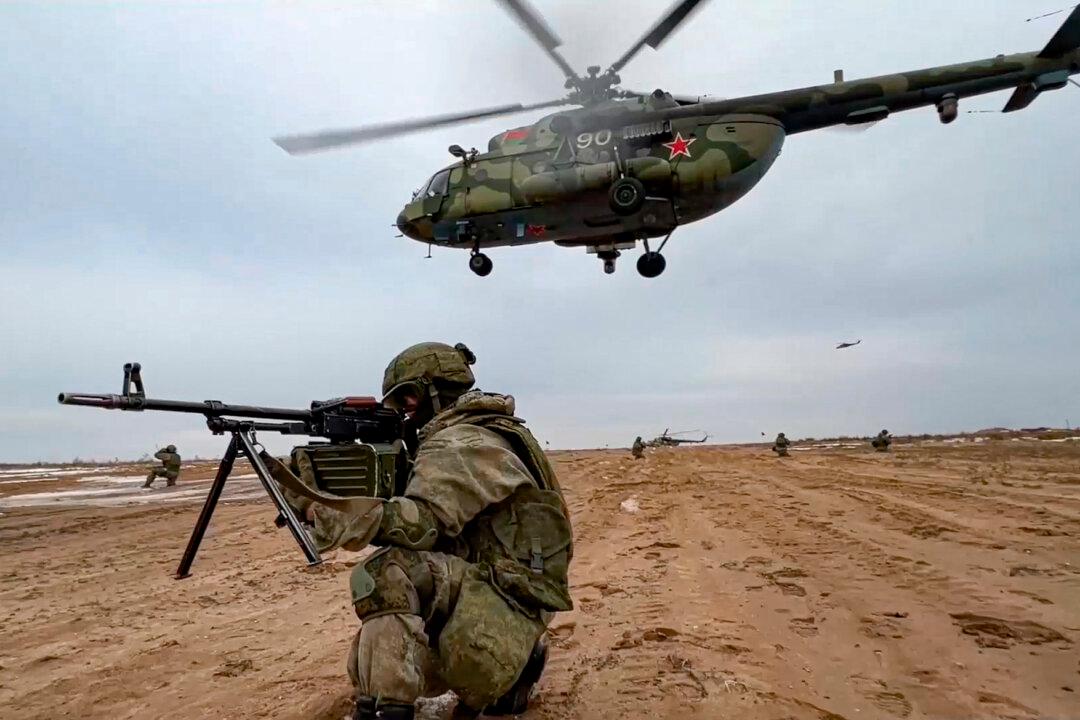A top Russian diplomat said that intelligence assessments from the United States or the United Kingdom can’t be trusted, due to past mistakes.
“We don’t trust the U.S. and British intelligence, they let us down, the whole world, on many occasions enough to remember weapons of mass destruction in Iraq,” Dmitry Polyanskiy, a deputy ambassador to the United Nations, told Sky News on Feb. 20.





